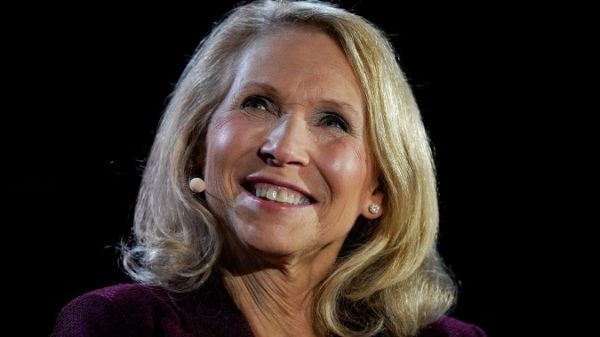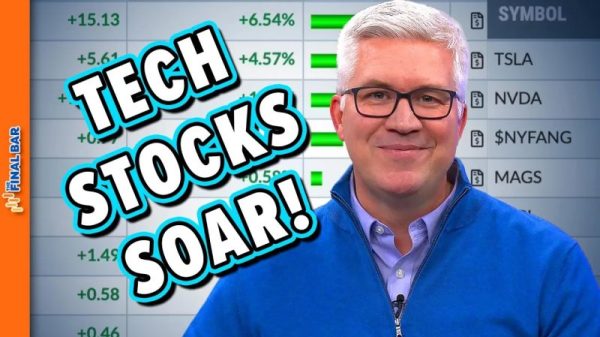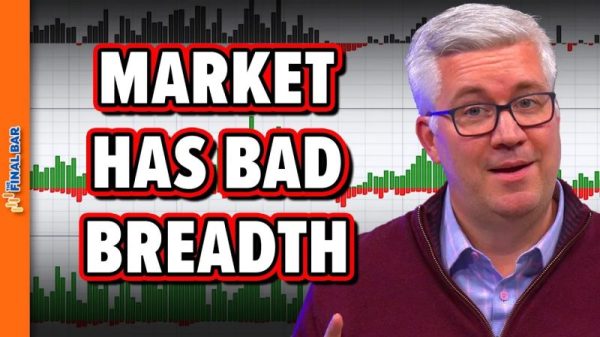President Biden notched an array of early endorsements from progressive groups. He has won the support of top liberals in Congress for his campaign. He has avoided a primary challenge from the left, largely unifying the Democratic Party behind his reelection.
But now, some liberals are warning with greater urgency that Biden must do more than just tout his record and warn about another Trump presidency to keep his party’s left flank energized. If Biden fails to more clearly lay out an ambitious liberal agenda for a second term, they say, the progressive voters he needs in 2024 may opt to stay home.
“Democrats up and down the line are going to have to be much clearer to the American people as to what they stand for and, most importantly, which side they are on in the great struggles that we face,” Sen. Bernie Sanders (I-Vt.) said in a recent speech, describing “enormous” crises facing the country, including inflation, wealth inequality and extreme weather events.
On NBC News’s “Meet the Press,” Sanders, a self-described democratic socialist who sought the presidency in 2020, added that Biden’s “Finish the job” campaign slogan falls short of an inspiring message. He praised Biden’s “long series of accomplishments” but said, “You cannot simply, as president of the United States, rest on your laurels.”
That sentiment, echoed privately by other liberal lawmakers and voters, is a warning sign for Biden’s campaign as it glides toward a general election in which even a sliver of disaffected voters could swing the race by staying home or backing a third-party candidate.
Rep. Jamaal Bowman (D-N.Y.), another prominent progressive, said that while he appreciates Biden’s actions such as capping insulin at $35 a month for seniors and raising taxes on wealthy corporations, he wishes the president had “more faith in the progressive agenda.” Biden’s willingness to “pivot to the middle” on issues such as crime, the environment and immigration has at times given liberals concerns, Bowman said in an interview.
“He’s balancing being responsive to the Progressive Caucus and new members of Congress, like myself, while also being responsive to very entrenched lobbies like the fossil fuel industry,” he said.
Biden has had to navigate a complex relationship with liberals since the beginning of his presidential run. As a candidate, he ran proudly to the right of rivals such as Sanders and Sen. Elizabeth Warren (D-Mass.), but as president he has often embraced their priorities — while diverging in critical areas.
Some progressive Democrats say his record has exceeded their expectations.
“No one fights harder for working people than President Joe Biden,” Warren said in a statement for this article. “The president has delivered once in a generation change through his leadership on issues ranging from climate resilience to student debt relief to junk fees.”
On one issue important to many liberals, the Department of Health and Human Services this week recommended that marijuana, which the federal government currently places among the riskiest of drugs alongside heroin and LSD, be reclassified as a lower-risk substance.
The White House, while denying it faces a problem with liberals, has been taking clear steps to keep them on board.
Newer White House officials, including National Economic Council Director Lael Brainard, have had lunch with Rep. Pramila Jayapal (D-Wash.), who heads the Congressional Progressive Caucus, officials said. Lawmakers including Sanders have been brought to the Situation Room for briefings on foreign policy matters, the officials said, speaking on the condition of anonymity to disclose private discussions.
Biden invited Bowman to ride with him on his Marine One helicopter amid negotiations earlier this summer on raising the debt ceiling. (Many liberals supported the debt limit legislation even though it included spending cuts, though Bowman, Jayapal and Sanders were not among them.)
But some progressives fear the White House is now turning away from them as Biden transitions to campaign mode and adjusts to governing with a Republican-led House. Climate activists, for example, blasted Biden’s agreement to fast-track a controversial oil pipeline in West Virginia and a separate decision to approve the Willow oil project, which is opposed by environmentalists.
Some on the left also bristled at Biden’s recent assertion that he had “practically” declared a climate emergency with his environmental policies, saying he should actually declare one, to combat extreme weather and other threats. And as the president focuses on pitching his “Bidenomics” message, they worry his desire to attract centrist voters will prompt an even more pronounced shift to the middle.
Nina Turner, a former Ohio state senator and surrogate for Sanders’s 2020 campaign, argues that Bidenomics has not done enough to help struggling Americans. “There’s no amount of branding that is going to change the fact that people’s dollars are not going as far as they once were able to, that people are suffering in this country,” Turner said on her “Unbossed” podcast.
Biden defied critics by avoiding a primary challenge from a more liberal governor or lawmaker, though he faces long-shot challenges from Robert F. Kennedy Jr. and Marianne Williamson.
But his bigger threat may come from a third-party run, if one gathers steam. Liberal philosopher Cornel West is seeking the Green Party nomination, stressing an argument that has often energized progressives in the past: that neither Democrats nor Republicans can bring the sweeping change the country needs.
“We’re talking about empowering those who have been pushed to the margins, because neither political party wants to tell the truth about Wall Street, about Ukraine, about the Pentagon, about Big Tech,” West said in his campaign launch video.
The prospect of a left-wing challenge is haunting for many Democrats who believe the last two Republican presidents, George W. Bush and Donald Trump, won their elections only because left-leaning voters in key swing states declined to back the Democratic nominee.
Green Party nominees Ralph Nader and Jill Stein siphoned off votes in key states in 2000 and 2016, respectively, paving the way for Bush and Trump to win the electoral college despite losing the popular vote.
Biden’s team hopes that liberals’ deep fear of a second Trump presidency averts a repeat of those races and overcomes any ambivalence progressives may feel about the president. “Don’t compare me to the Almighty — compare me to the alternative,” has become a common refrain for Biden, who reiterated that message in the aftermath of the recent GOP presidential debate.
Biden’s allies have sought to turn the entire GOP field into a kind of stand-in for Trump, painting the GOP contenders as similarly “extreme.” The recent debate, they say, showed that the Republican candidates would sabotage democracy, end abortion rights and exacerbate climate change.
“Last week’s RNC debate reminded many Americans of the choice they will face between MAGA Republicans that want to take the country backwards and make Americans’ lives harder, or a president who is delivering on the real issues they’re facing,” said Biden campaign spokesman Kevin Munoz.
Still, a Marquette Law School poll found last month that 54 percent of “somewhat liberal” and 55 percent of “very liberal” voters did not want Biden to seek reelection. And some caution that dark warnings may not do the job of motivating Democrats.
“I don’t know that we can conclude that it’s sufficient to use the fear of Trump as enough to guarantee the president a win,” said Amara Enyia, policy director for the Movement for Black Lives and a former mayoral candidate in Chicago.
Still, the Biden argument is resonating with prominent liberals. His reelection effort has been endorsed by Bowman, Jayapal, Rep. Alexandria Ocasio-Cortez (D-N.Y.) and other members of the Congressional Progressive Caucus, as well as influential left-leaning groups such as MoveOn.
The debate within the progressive movement was reflected Sunday on CNN’s “State of the Union,” when Sanders was asked about criticism from West that fear of Trump is not a good enough reason for the left to support Biden.
Sanders disagreed. “Donald Trump is not somebody who believes in democracy,” he said. “I think we have got to bring the entire progressive community to defeat Trump, or whoever the Republican nominee will be, [and] support Biden.”
White House officials say they have been deliberate about maintaining strong relationships with left-leaning lawmakers. Former White House chief of staff Ron Klain had a particularly close relationship with progressives like Jayapal, who called him a “national treasure.”
Some progressive lawmakers initially said that the transition in February to chief of staff Jeff Zients, which came as Biden was embracing more-moderate policies on crime and immigration, was rocky. Those complaints have mostly subsided, however, and White House officials say Zients and others have made a concerted effort to consult with left-leaning lawmakers and activists in recent months, officials said.
More broadly, White House aides say Biden’s presidency has been marked by an alliance with progressives to deliver sweeping legislation, from a historic investment in climate action to the long-sought authorization for Medicare to negotiate prescription drug prices. Biden has also taken executive actions on student loans, racial equity and gun violence, they note.
“He looks forward to partnering with them to achieve more historic gains for the middle class, including the concrete plans he laid out in the State of the Union and his budget that won strong endorsements from progressive lawmakers across the board,” said White House spokesman Andrew Bates.
Biden’s allies reject the idea that the president is now pivoting to the middle, saying he has always sought a balance between liberals and moderates. In the 2020 campaign, Biden formed working groups with Sanders’s team, but he also spoke frequently of bipartisanship.
That resulting record leaves some liberals dissatisfied. Many cite the more sweeping pieces of Biden’s agenda that failed in a divided Congress or were struck down by the courts, and they question whether Biden is sufficiently committed to such goals as paid family and medical leave, universal preschool, police reform and expanded voting rights.
West has billed his Green Party candidacy as an alternative option for those voters, pitching himself as a more stalwart champion on issues such as poverty and environmental justice.
Biden’s allies say he is a formidable political strategist, pointing to his legislative accomplishments, successful debt limit negotiations and midterm elections that turned out better than expected for Democrats. “The record speaks for itself,” Bowman said, praising Biden’s ability to pass legislation through a Senate divided almost evenly between the parties.
The GOP debate reflected a contrast that Democratic leaders hope will rally the party behind Biden, especially on issues such as climate change.
Entrepreneur Vivek Ramaswamy, who stood near the center of the Republican debate stage and was involved some of the night’s most memorable moments, declared that “the climate change agenda is a hoax” and claimed without evidence that more people are dying because of bad climate policies than because of climate change itself. Most other GOP candidates onstage declined to engage substantively on the matter.
That prompted a retort from Biden, who took to X, formerly called Twitter, to respond.
“Climate change is real, by the way,” he wrote.
Scott Clement contributed to this report.
President Biden notched an array of early endorsements from progressive groups. He has won the support of top liberals in Congress for his campaign. He has avoided a primary challenge from the left, largely unifying the Democratic Party behind his reelection.
But now, some liberals are warning with greater urgency that Biden must do more than just tout his record and warn about another Trump presidency to keep his party’s left flank energized. If Biden fails to more clearly lay out an ambitious liberal agenda for a second term, they say, the progressive voters he needs in 2024 may opt to stay home.
“Democrats up and down the line are going to have to be much clearer to the American people as to what they stand for and, most importantly, which side they are on in the great struggles that we face,” Sen. Bernie Sanders (I-Vt.) said in a recent speech, describing “enormous” crises facing the country, including inflation, wealth inequality and extreme weather events.
On NBC News’s “Meet the Press,” Sanders, a self-described democratic socialist who sought the presidency in 2020, added that Biden’s “Finish the job” campaign slogan falls short of an inspiring message. He praised Biden’s “long series of accomplishments” but said, “You cannot simply, as president of the United States, rest on your laurels.”
That sentiment, echoed privately by other liberal lawmakers and voters, is a warning sign for Biden’s campaign as it glides toward a general election in which even a sliver of disaffected voters could swing the race by staying home or backing a third-party candidate.
Rep. Jamaal Bowman (D-N.Y.), another prominent progressive, said that while he appreciates Biden’s actions such as capping insulin at $35 a month for seniors and raising taxes on wealthy corporations, he wishes the president had “more faith in the progressive agenda.” Biden’s willingness to “pivot to the middle” on issues such as crime, the environment and immigration has at times given liberals concerns, Bowman said in an interview.
“He’s balancing being responsive to the Progressive Caucus and new members of Congress, like myself, while also being responsive to very entrenched lobbies like the fossil fuel industry,” he said.
Biden has had to navigate a complex relationship with liberals since the beginning of his presidential run. As a candidate, he ran proudly to the right of rivals such as Sanders and Sen. Elizabeth Warren (D-Mass.), but as president he has often embraced their priorities — while diverging in critical areas.
Some progressive Democrats say his record has exceeded their expectations.
“No one fights harder for working people than President Joe Biden,” Warren said in a statement for this article. “The president has delivered once in a generation change through his leadership on issues ranging from climate resilience to student debt relief to junk fees.”
On one issue important to many liberals, the Department of Health and Human Services this week recommended that marijuana, which the federal government currently places among the riskiest of drugs alongside heroin and LSD, be reclassified as a lower-risk substance.
The White House, while denying it faces a problem with liberals, has been taking clear steps to keep them on board.
Newer White House officials, including National Economic Council Director Lael Brainard, have had lunch with Rep. Pramila Jayapal (D-Wash.), who heads the Congressional Progressive Caucus, officials said. Lawmakers including Sanders have been brought to the Situation Room for briefings on foreign policy matters, the officials said, speaking on the condition of anonymity to disclose private discussions.
Biden invited Bowman to ride with him on his Marine One helicopter amid negotiations earlier this summer on raising the debt ceiling. (Many liberals supported the debt limit legislation even though it included spending cuts, though Bowman, Jayapal and Sanders were not among them.)
But some progressives fear the White House is now turning away from them as Biden transitions to campaign mode and adjusts to governing with a Republican-led House. Climate activists, for example, blasted Biden’s agreement to fast-track a controversial oil pipeline in West Virginia and a separate decision to approve the Willow oil project, which is opposed by environmentalists.
Some on the left also bristled at Biden’s recent assertion that he had “practically” declared a climate emergency with his environmental policies, saying he should actually declare one, to combat extreme weather and other threats. And as the president focuses on pitching his “Bidenomics” message, they worry his desire to attract centrist voters will prompt an even more pronounced shift to the middle.
Nina Turner, a former Ohio state senator and surrogate for Sanders’s 2020 campaign, argues that Bidenomics has not done enough to help struggling Americans. “There’s no amount of branding that is going to change the fact that people’s dollars are not going as far as they once were able to, that people are suffering in this country,” Turner said on her “Unbossed” podcast.
Biden defied critics by avoiding a primary challenge from a more liberal governor or lawmaker, though he faces long-shot challenges from Robert F. Kennedy Jr. and Marianne Williamson.
But his bigger threat may come from a third-party run, if one gathers steam. Liberal philosopher Cornel West is seeking the Green Party nomination, stressing an argument that has often energized progressives in the past: that neither Democrats nor Republicans can bring the sweeping change the country needs.
“We’re talking about empowering those who have been pushed to the margins, because neither political party wants to tell the truth about Wall Street, about Ukraine, about the Pentagon, about Big Tech,” West said in his campaign launch video.
The prospect of a left-wing challenge is haunting for many Democrats who believe the last two Republican presidents, George W. Bush and Donald Trump, won their elections only because left-leaning voters in key swing states declined to back the Democratic nominee.
Green Party nominees Ralph Nader and Jill Stein siphoned off votes in key states in 2000 and 2016, respectively, paving the way for Bush and Trump to win the electoral college despite losing the popular vote.
Biden’s team hopes that liberals’ deep fear of a second Trump presidency averts a repeat of those races and overcomes any ambivalence progressives may feel about the president. “Don’t compare me to the Almighty — compare me to the alternative,” has become a common refrain for Biden, who reiterated that message in the aftermath of the recent GOP presidential debate.
Biden’s allies have sought to turn the entire GOP field into a kind of stand-in for Trump, painting the GOP contenders as similarly “extreme.” The recent debate, they say, showed that the Republican candidates would sabotage democracy, end abortion rights and exacerbate climate change.
“Last week’s RNC debate reminded many Americans of the choice they will face between MAGA Republicans that want to take the country backwards and make Americans’ lives harder, or a president who is delivering on the real issues they’re facing,” said Biden campaign spokesman Kevin Munoz.
Still, a Marquette Law School poll found last month that 54 percent of “somewhat liberal” and 55 percent of “very liberal” voters did not want Biden to seek reelection. And some caution that dark warnings may not do the job of motivating Democrats.
“I don’t know that we can conclude that it’s sufficient to use the fear of Trump as enough to guarantee the president a win,” said Amara Enyia, policy director for the Movement for Black Lives and a former mayoral candidate in Chicago.
Still, the Biden argument is resonating with prominent liberals. His reelection effort has been endorsed by Bowman, Jayapal, Rep. Alexandria Ocasio-Cortez (D-N.Y.) and other members of the Congressional Progressive Caucus, as well as influential left-leaning groups such as MoveOn.
The debate within the progressive movement was reflected Sunday on CNN’s “State of the Union,” when Sanders was asked about criticism from West that fear of Trump is not a good enough reason for the left to support Biden.
Sanders disagreed. “Donald Trump is not somebody who believes in democracy,” he said. “I think we have got to bring the entire progressive community to defeat Trump, or whoever the Republican nominee will be, [and] support Biden.”
White House officials say they have been deliberate about maintaining strong relationships with left-leaning lawmakers. Former White House chief of staff Ron Klain had a particularly close relationship with progressives like Jayapal, who called him a “national treasure.”
Some progressive lawmakers initially said that the transition in February to chief of staff Jeff Zients, which came as Biden was embracing more-moderate policies on crime and immigration, was rocky. Those complaints have mostly subsided, however, and White House officials say Zients and others have made a concerted effort to consult with left-leaning lawmakers and activists in recent months, officials said.
More broadly, White House aides say Biden’s presidency has been marked by an alliance with progressives to deliver sweeping legislation, from a historic investment in climate action to the long-sought authorization for Medicare to negotiate prescription drug prices. Biden has also taken executive actions on student loans, racial equity and gun violence, they note.
“He looks forward to partnering with them to achieve more historic gains for the middle class, including the concrete plans he laid out in the State of the Union and his budget that won strong endorsements from progressive lawmakers across the board,” said White House spokesman Andrew Bates.
Biden’s allies reject the idea that the president is now pivoting to the middle, saying he has always sought a balance between liberals and moderates. In the 2020 campaign, Biden formed working groups with Sanders’s team, but he also spoke frequently of bipartisanship.
That resulting record leaves some liberals dissatisfied. Many cite the more sweeping pieces of Biden’s agenda that failed in a divided Congress or were struck down by the courts, and they question whether Biden is sufficiently committed to such goals as paid family and medical leave, universal preschool, police reform and expanded voting rights.
West has billed his Green Party candidacy as an alternative option for those voters, pitching himself as a more stalwart champion on issues such as poverty and environmental justice.
Biden’s allies say he is a formidable political strategist, pointing to his legislative accomplishments, successful debt limit negotiations and midterm elections that turned out better than expected for Democrats. “The record speaks for itself,” Bowman said, praising Biden’s ability to pass legislation through a Senate divided almost evenly between the parties.
The GOP debate reflected a contrast that Democratic leaders hope will rally the party behind Biden, especially on issues such as climate change.
Entrepreneur Vivek Ramaswamy, who stood near the center of the Republican debate stage and was involved some of the night’s most memorable moments, declared that “the climate change agenda is a hoax” and claimed without evidence that more people are dying because of bad climate policies than because of climate change itself. Most other GOP candidates onstage declined to engage substantively on the matter.
That prompted a retort from Biden, who took to X, formerly called Twitter, to respond.
“Climate change is real, by the way,” he wrote.
Scott Clement contributed to this report.























